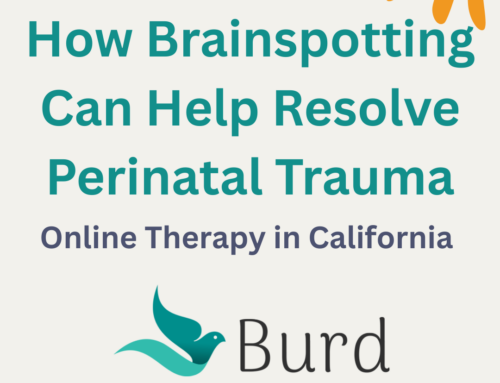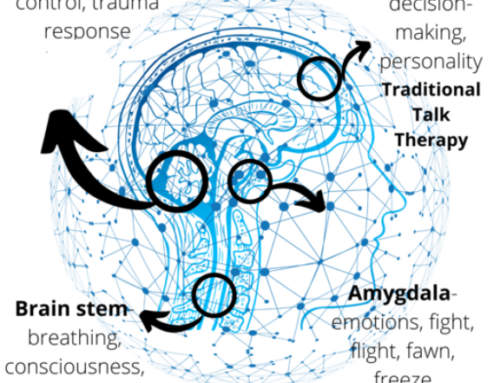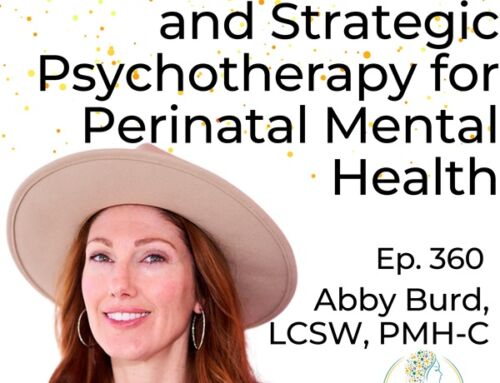
Reproductive Trauma
Reproductive trauma is often kept secret, in the shadows. Infant death is a disenfranchised loss that our society doesn’t know how to properly grieve. Although miscarriage and pregnancy loss affect one in four women, we are told to keep it secret, leaving us to feel alone. Worse, those that experience it often blame themselves.
Selecting the right kind of therapy for reproductive mental health
Over the years, I have helped a number of my clients overcome various reproductive losses and birth trauma. As an integrative therapist, I am very strategic in selecting a combination of evidenced-based best practices as well as trusting my intuition to invent or match a novel approach.
What is reproductive trauma?
Reproductive trauma describes any event that disrupts the journey to pregnancy, childbirth, and parenting. It includes violence or harm to the birthing person, as well as the death of an infant, ending of a pregnancy, or infertility. Examples I’ve seen in my private practice include but are not limited to:
- maternal near death experiences
- obstetrical violence
- racial disparities in maternal and infant mortality
- miscarriage, ectopic pregnancy
- infertility
- termination for medical reasons (TFMR), ending a wanted pregnancy
- abortion, including ambivalence around making the decision and regret after
- stillbirth
- infant loss
- medically complicated infants, premies, NICU stays
- separation from baby
- issues with surrogates
- racialized obstetrical trauma
- anxiety during a pregnancy after loss (PAL)
What are the evidenced based best practices for therapy after reproductive trauma?
Cognitive Behavioral Therapy (CBT) is well documented as helpful for perinatal mood and anxiety disorders (PMADs) such as postpartum depression (PPD) and postpartum anxiety. (Watch a video on how to help postpartum anxiety here). I breakdown CBT and use it throughout my book, The Postpartum Depression Workbook.
Critiques of CBT include that it can sound like “toxic positivity” and that it makes folks just tolerate injustice. I will use it when my clients ask for tools, provided we first use a liberation framework to help decide when an external change is needed vs. internal soothing.
Interpersonal Psychotherapy (IPT) has perhaps even more research literature than CBT documenting how well it can help perinatal mood and anxiety disorders, including postpartum PTSD. I was grateful to train with one of the founders, Dr. Scott Stuart, through the Postpartum Health Alliance in 2017. IPT targets grief and loss, role transitions, and interpersonal disputes. I find it especially helpful for when you and your partner are dealing with the reproductive trauma in a different way. It is time-limited, eases symptoms, and many of my clients have liked switching to IPT’s “maintenance mode” after we finish the active stage.
“Bottom Up” Approaches include therapies that work on the body and nervous system directly, such as EMDR, Brainspotting, and somatic techniques such as Somatic Experiencing. Essentially, they work on the principle that trauma is stored in the body and that simply telling yourself otherwise is not enough. I believe that movement makes a big difference. (Read more about my “walk and talk” sessions here.)
Narrative Therapy is a great way to regain control of your story and where you would like it to go. Specifically, when I work with anyone in this life stage, I am listening out for their “reproductive story.” Sometimes people have a clear vision of a path to parenthood. Other times your story may be less conscious, but you still imagined that becoming a parent would be possible. I have found the biggest predictor of perinatal mood and anxiety disorders (PMADs) or reproductive trauma is when that story is challenged – or when things do not go how we expect. With narrative therapy, we can find hope and healing, no matter where life will take us.
What are “novel approaches” for perinatal trauma?
I use the term “novel” just to mean newer or less common. Many of these are still documented as effective and have a scientific backing. However, when I am working with someone, I trust a combination of my instincts, my experience, my gut, and a strategic lens of what’s needed to customize each individual’s plan. Sometimes I get little creative bursts of ideas that just come to me. On the one hand, I think of this as the “art” of therapy. Yet, on the other, I had a clinical supervisor once who said, “It’s not instinct, you have the knowledge, you just jump to it quickly.”
Whether you believe it’s intuition, or just decades of experience, some of the less common approaches I use include clinical hypnosis, strategic psychotherapy, expressive art therapy, and comedic improv. Let me know if you want to hear more about any of them. They could each be their own blog post!
If you are in the state of California and interested in starting therapy for reproductive trauma:
I have not had many openings for years. Which means I am thrilled to finally say…
I have a few openings for new clients! :)
Please send me a text message at 619-289-7818 or email abby@burdtherapy.com to set up a time for a free 15 minute phone call to see if I might be a fit for you. If I am not a fit, I’ll help you find someone who is.
If you are a therapist wanting to gain more training in treating reproductive trauma:
I have been hard at work creating a dynamic webinar on “Novel Approaches for Overcoming Reproductive Trauma.” I was honored to have the Institute for Violence and Trauma (IVAT) ask me to speak. Please consider joining us on Thursday, September 19th, from 10am to 11:30am PDT. This continuing education course will definitely set you up with more tools to play around with.
Who can take the continuing education course on reproductive trauma?
The course is approved for continuing education for psychotherapists including psychologists, clinical social workers, marriage and family therapists, and licensed professional clinical counselors. I’m thrilled to share that Postpartum Support International’s certification team as approved this course as specifically appropriate for continuing education for certified perinatal mental health providers (PMH-C’s). Finally, through my partnership with IVAT, this September’s training is eligible for continuing education for registered nurses. Please especially consider if you are a nurse or midwife working in OB/GYN or fertility medicine. Although I hope to offer this training to psychotherapists in the future, this may be the only opportunity for nurses to get certificates of CEUs.

Updates! First, PSI Approved for the 6-Hour Advanced Requirement
In addition to being an approved course for continuing education for PMH-C perinatal mental health providers, the PSI certification team has also approved my course on reproductive trauma for satisfying the 6-hour requirement of advanced training. If you are a provider looking to learn more about Certification in Perinatal Mental Health, please visit this site.
Next, A second training date has been added – 10/18/24
I’m happy to share that my colleagues at Coastal Continuing Education have partnered with me to share an expanded version (2 hours) of this same training on October 18th at 9am. Register here. They are approved by the California Psychological Association to provide training to psychologists, which the California Board of Behavioral Sciences accepts. PSI has also approved this for PMH-C advanced requirement and continuing education. This version will contain more time for case studies, Q and A, and interaction. The expectation of the California Psychological Association is that participant cameras will be on most of the time. (In contrast, there will be no option for cameras on for participants in the September webinar.)
Professional Bio
Abigail (Abby) Burd, LCSW, PMH-C, is a reproductive mental health specialist, trainer and consultant, based in San Diego, CA, at Burd Psychotherapy and Education. She is a licensed clinical social worker and certified in Perinatal Mental Health (Psychotherapy) by Postpartum Support International. Abby is passionate about the perinatal stage and is humbled by the privilege of becoming a parent to two children. She has been a mental health professional since 1998, specializing in perinatal mental health since 2013.
Abby is an active member of the Postpartum Health Alliance and has served on their executive board. She is the author of the bestselling 2020 publication, “The Postpartum Depression Workbook” and the past creator of online educational content, including “Prevent Postpartum Depression,” and “Relationships After Baby.” Additionally, Abigail Burd, MSW, LCSW, PMH-C, LCS 26867, is employed at MiraCosta College, serving a very diverse community as a mental health counselor and clinical supervisor. Visit BurdTherapy.com to learn more, or follow @BurdTherapy on Instagram, “Burd Psychotherapy and Education” on Facebook.
Partial Bibliography (may include Amazon affiliate links)
Bright, K. S., Charrois, E. M., Mughal, M. K., Wajid, A., McNeil, D., Stuart, S., Hayden, K. A., & Kingston, D. (2020). Interpersonal psychotherapy to reduce psychological distress in perinatal women: A systematic review. International Journal of Environmental Research and Public Health, 17(22), 8421.
Burd, A. (2020). The postpartum depression workbook: Strategies to overcome negative thoughts, calm stress, and improve your mood. Rockridge Press.
Cooper Owens, D. (2021). Medical bondage race, gender, and the origins of American gynecology. University of Georgia Press.
Jaffe, J. (2024). Reproductive trauma: Psychotherapy with clients experiencing infertility and pregnancy loss. American Psychological Association.
Major-Kincade, T., & Kiley, H. (2020, June). Challenging the Superwoman Mentality in the Black Community after Pregnancy and Infant Loss. Return to Zero: H.O.P.E. (Lecture.)
Manke, K. (2020, February 17). Historian uncovers gynecology’s brutal roots in slavery. Berkeley News.
Stanley, B. (2021, July 7). History, Race, Time, and the Father of Gynecology. Online MedEd.
Yapko, M. D. (2019). Trancework: An introduction to the practice of Clinical Hypnosis. Routledge.







[…] my practice, reproductive trauma, such as birth trauma, stillbirth, TFMR, miscarriage and more, is not always healed completely with […]
[…] pregnancy, birth, or postpartum experience, you’re not alone—and you’re not broken. Perinatal trauma is more common than many people realize, and it deserves compassionate, effective […]